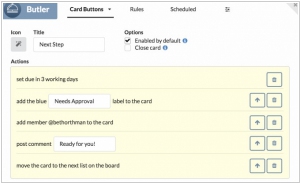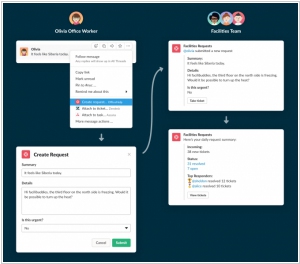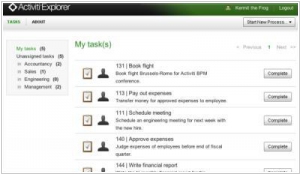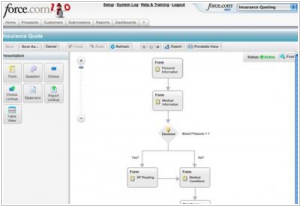Routine Automation software
Updated: August 01, 2023
Routine automation refers to the process of automating repetitive and mundane tasks to enhance productivity and efficiency. This automation can be achieved using software tools, scripts, or robotic process automation (RPA) to streamline routine processes, such as data entry, file management, email sorting, and task scheduling. By implementing routine automation, individuals and businesses can free up valuable time and resources, allowing employees to focus on more complex and strategic tasks that require human creativity and problem-solving abilities. Routine automation not only reduces human error but also accelerates task completion, leading to increased productivity and cost savings. With the growing availability of automation tools and technologies, routine automation is becoming an integral part of modern workflows, enabling individuals and organizations to work smarter, not harder.
See also: Top 10 Public Cloud Platforms
See also: Top 10 Public Cloud Platforms
2018. Trello acquired business process automation tool Butler

Trello, the collaborative tool under the ownership of Atlassian, has recently made an acquisition of Butler, a lightweight business process automation tool. With the integration of Butler, Trello gains the capability of automation, enabling users to streamline complex tasks through a series of automated commands. Over time, teams have recognized the value of automating processes on Trello boards using the Butler Power-Up, allowing them to allocate more time to essential responsibilities and enhance overall productivity. Butler empowers teams to systematize business rules and procedures, transforming a ten-step process into a single-click automation. This signifies that Trello transcends its static organizational role and ventures into the realm of agile business process automation.
2018. Slack acquired routine automation app Missions

Slack has completed the acquisition of Missions, an app that enables Slack users to create code-free automation tools for streamlining routine tasks. By leveraging Missions' technology, individuals can develop workflows for activities that would typically require discussion within Slack and execute them outside of the chat environment. Slack aims to enhance team productivity by empowering users to simplify various repetitive processes. The application holds potential in assisting users with tasks such as managing approvals and rejections during the hiring process and facilitating internal ticketing. With the integration of Missions, Slack envisions providing a more efficient and streamlined experience for its users across multiple operational areas.
2010. Alfresco launched free BPM engine

Alfresco loves to make problems for IT giants by its altruistic approach to business. For several years, this company is exerting pressure on ECM market leaders (Microsoft, IBM, Open Text, EMC, Oracle) by providing high-quality free/cheap open-source system Alfresco ECM. And now, the company decided to build communism in another, related IT field - BPM (Business Process Management). The new Alfresco product - Activiti is absolutely free, open-source BPM system, distributed under Apache License 2.0. To develop this system Alfresco (traditionally) enticed executives from competing project JBoss jBPM - Tom Baeyens and Joram Barrez. They were helped by the SpringSource (VMWare) developers. In result they built light-weight, fast and free product that is intended to revolutionize the BPM market. ***
2010. Salesforce now can automate business processes

Yes, Salesforce still had no inbuilt business processes automation tool (only integrated third-party solutions). But business process automation - is a delicate feature that it's better not to provide it at all than provide it somehow. Many other CRM systems promote their business-process automation modules, but actually they bring more problems than profits. In contrast, the new Salesforce module - Visual Process Manager looks pretty nice and simple. Generally, in this case it is better not talk about business processes, but about automation of any operation in the system. There are 4 main spheres where this new tool could be applied: ***

